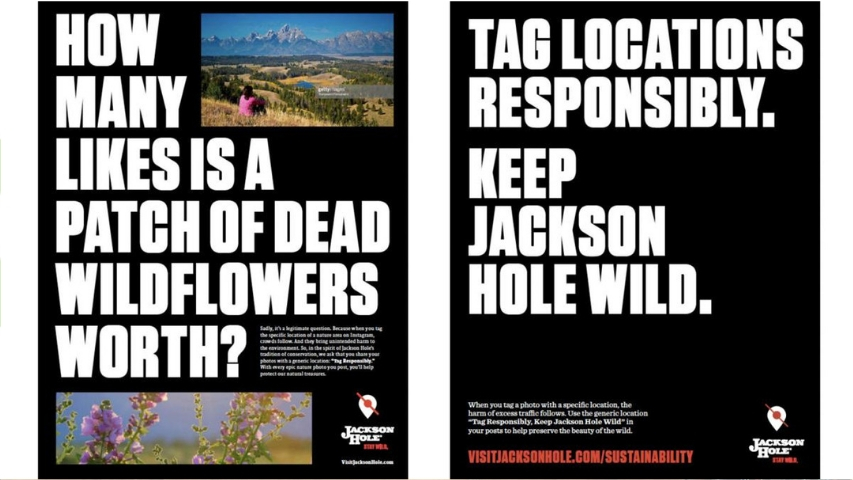
Geo-tagging puts Fragile Eco-systems and Wild animals at Risk
by Shruthi Venkatesh December 7 2018, 5:58 pm Estimated Reading Time: 3 mins, 14 secsGeo-tagging is now a threat to natural wonders. In a recent news article published by The New York Times, the world’s nature destinations are being exploited by people who are making it unworthy or get satisfied with just a click. In regard to this, the Jackson Hole Travel & Tourism Board asked visitors to stop geotagging photographs on social media in an effort to protect the state’s pristine forests and remote lakes. Focusing on how these destinations are being made to use; Brian Modena, a tourism-board member, suggested the landscape was under threat from visitors drawn by the beautiful vistas on Instagram. However, the social media plays a vital role.

Geo-tagging puts Fragile Eco-systems and Wild animals at Risk
Modena states an example of the Delta Lake which is now being vastly exploited. “Influencers started posting from the top of the lake. Then it started racing through social media” she says. It is believed that years back the Delta Lake witnessed just one or two hikers a day who had a good trekking experience, but now the situation got worse as there are about 145 people who visit for engagement photos. The researchers felt that the natural resources are being exploited in a very malicious way. “We want people to have a real connection to nature,” Mr. Modena said, “not just a page with a pin on it.”
So what is the impact caused by Geo-tagging? The multiple clicks with an android device have led the local residents protest on photo-tourism. In Hong Kong, public housing developments have become popular backdrops for photographers, much to the ire of residents. A Canadian sunflower farmer recently barred visitors after they damaged his field. A recent episode in which a bison calf at Yellowstone National Park was euthanized after being placed in the back of an S.U.V. is one example of the awful consequences of a widespread and common occurrence of humans interacting inappropriately with wild animals, officials said. Such encounters are fuelled by the culture of selfies, along with ignorance about nature, and they lead to encounters that are dangerous to both people and animals.
The case becomes worse when it comes to poaching. It makes easy for those poachers out there who are wildly waiting to hunt. This made South Africa, to attach signs to fences along safari routes, requesting photographers not share the location of rhinos, which are the target of poachers.
In Jackson Hole, the tourism board has suggested that visitors use the generic location tag, “Tag Responsibly, Keep Jackson Hole Wild.” Some Instagrammers have adopted a new hash tag -#nogeotag. Dana Watts, the executive director of Leave No Trace, said “There are a lot of reasons why people want to showcase where they have been. Bragging rights. It’s an unusual place.” But, she said, “We just want people to stop and think before they share a location.” “While tagging can seem innocent,” she added, “it can lead to significant impact.”
It is been made clear that Mr. Modena and the tourism board are not asking people to stop taking photographs altogether. It is just that Tourism in Yellowstone and the Grand Teton national parks drive the local economy. “We want to start a responsible conversation now about social media and conservation,” he said. “Selfishly, there are hikes I’ve seen that are beautiful that I am not going to name.” It might take years to change the behaviour to lessen the use of smart phones in such spots, yet a Smartphone in hand goes necessary at all times. Well, we couldn’t do anything about it. Only the mentality or the acceptance of a human would create a change.





-173X130.jpg)
-173X130.jpg)
-173X130.jpg)

-173X130.jpg)
-173X130.jpg)
-173X130.jpg)